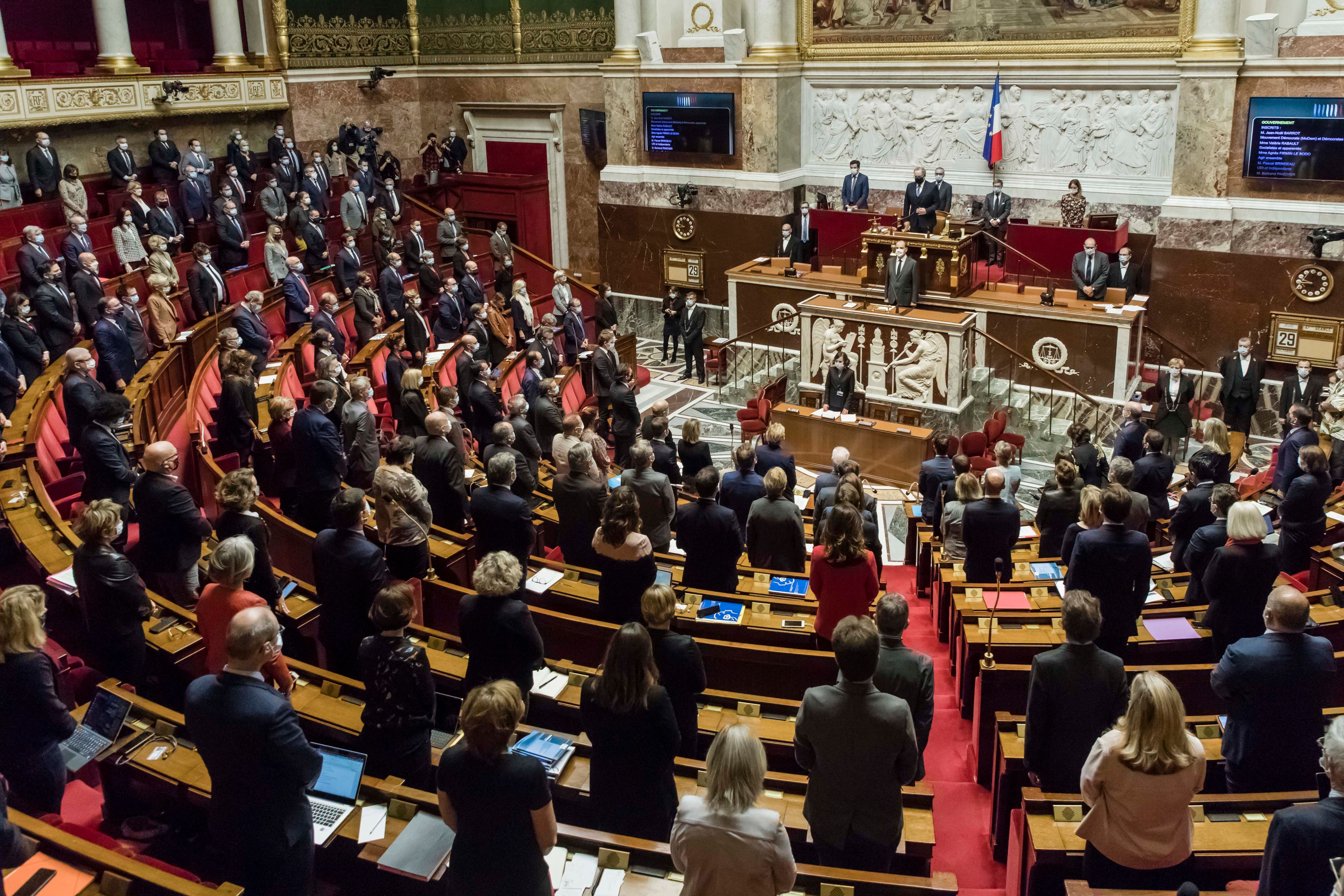Franco-British Relations after Brexit

From the beginning of the Brexit negotiations, France’s priority was to secure its economic interests by setting viable trade terms with the United Kingdom. The exchange of goods between the two countries reached €54 billion in 2019, giving France a surplus of €12.5 billion. At the same time, France wanted to maintain the British commitment to EU standards and minimise the risk of British dumping in the EU market. The UK’s goal was to keep open the free trade regime while liberating itself from EU regulations. The TCA, while maintaining duty-free trade in goods, does not precisely regulate the cross-border provision of services (80% of the structure of the British economy and about €30 billion of the British-French turnover in 2019) and investments (the value of British investments in France is estimated at €94 billion, and that of the French in the UK at £79 billion), which widens the scope for future disputes.
While in the economic dimension it is difficult to find any positive aspects of Brexit for France, its political context allowed it to effectively push through in the EU ideas that would previously have met with resistance from the UK. The new Directive on posted workers and the EU recovery plan after the pandemic (NGEU), establishing common debt for the first time, have been successes for France. French authorities are also aware that the UK is interested rather in bilateral cooperation with selected Member States than with the EU as a whole.
Common Goals
For France, the proof that relations after Brexit can develop positively is cooperation on global problems. The UK is one of the leaders in ambitious climate policy. In December 2020, during a virtual climate summit organised jointly with France and the United Nations, Prime Minister Boris Johnson declared that Britain aims to stop financing fossil fuel extraction abroad. The British government wants to reduce CO2 emissions by 68% by the end of the decade compared to 2020, and before the COP26 summit in Glasgow, scheduled for the end of 2021, it will present a plan for a “green industrial revolution” similar to the environmental goals of the French recovery plan. In January 2021, both countries also made commitments to protect biodiversity in Africa.
During the presidency of Donald Trump, the UK made efforts to save the Iran nuclear deal (JCPOA) in solidarity with the EU. The three European signatories of the agreement (the “E3”—France, Germany, UK) have consistently expressed opposition to the U.S. leaving the JCPOA and their dissatisfaction with Iran’s violation of its conditions. Also, when it comes to U.S. recognition of Jerusalem as the capital of Israel, Israeli sovereignty over the Golan Heights, and the attitude towards Jewish settlement on the west bank of the Jordan, the E3 have been showing opposition to the actions of the Trump administration.
At the British request, the TCA provides only limited provisions for cooperation in security and defence matters. This means that the UK wants to be free in choosing partners among the Member States. France will surely be one of them. The basis for relations in this area, apart from the membership of both countries in NATO, is the Treaty of Lancaster House, concluded in 2010, which provides for the strengthening of joint operational capabilities, support for the production of new types of weapons, and nuclear cooperation. A way to anchor the UK in European security policy may also be France’s idea of a European Security Council. From the latter’s point of view, this institution would symbolise the taking over from the U.S. of some responsibility for the continent’s security, while Franco-British cooperation within it would balance Germany’s influence.
The proof of Franco-British military operational cooperation is the Joint Expeditionary Force (CJEF), which in 2020 achieved combat capacity of up to 10,000 soldiers. The UK is also part of the European Intervention Initiative (EII), created on the initiative of France and aiming to develop a “common strategic culture” of European countries. The British also maintain a contingent in the Sahel, an area important for French interests.
France also wants the British defence and aviation industries to maintain ties with European partners, with special regard to the French-British MBDA consortium and the Airbus plant in the UK. The importance of Franco-British strategic cooperation was emphasised by Emmanuel Macron in February 2020 in his speech on French nuclear deterrence. He reaffirmed the statement figuring in the bilateral declaration on nuclear cooperation from 1995 that any threat to the fundamental interests of one of the two states automatically threatens the other. Scientific cooperation on the improvement of nuclear weapons, provided for by the TEUTATES treaty of 2010, also remains in force.
Divergences
Brexit weakens the UK’s position within NATO, especially in view of the political change in the U.S. France may try to use the new political constellation in the U.S. to take over the position of Deputy Allied Commander in Europe (DSACEUR), arguing that it should go to an EU member. British authorities may in response recall that the French concepts of NATO reform and building European defence outside the Alliance are aimed at the U.S. Another argument that disadvantages France is its low involvement in the area of the Eastern Flank, which is crucial from the point of view of NATO goals.
The TCA bears the seeds of future economic disputes. France aims to take over some financial operations carried out so far by the London Stock Exchange by the Paris Stock Exchange. Both the EU and the UK may unilaterally withdraw consent to the provision of financial services in their territories by entities of the other party. As this sector is more important to the UK than for France, the British economy will be more exposed to losses resulting from the possible withdrawal of consent by the EU.
The principles of fair competition (“level playing field”) may also be a source of controversy. Both France and the UK want to be able to support its enterprises with public aid mechanisms. France wants the easing of EU restrictions introduced during the pandemic to become a permanent solution. A possible race of protectionism may lead to the mutual imposition of penal duties and encourage both countries to use the EU-British dispute resolution mechanism provided for in the TCA, the effectiveness of which is however uncertain.
Conclusions and Prospects
France will try to get the most benefits from the new model of bilateral relations with the UK. In the area of security, it would be valuable for France to increase British involvement in the Sahel and in the Mediterranean. The UN Security Council, G7, G20, and E3 formats will become, to an even greater extent, a principal space of political cooperation between the two countries.
Rebuilding trust in relations with the UK is necessary for France due to the fear that French foreign policy will be too dependent on cooperation with Germany. Although the E3 format was unanimous in matters of world security, France will emphasise Germany’s military weakness to put itself as a privileged partner of the UK. For Germany, it would be beneficial to step up, in response, a security cooperation with the countries of Central Europe and of the Eastern Partnership.
The French authorities believe that Brexit will allow them to more effectively pursue the vision of the development of the EU as a geopolitical superpower. Emphasis will be placed on fiscal and social harmonisation and the permanent loosening of state aid restrictions and budgetary discipline. The common market is to increasingly become a tool of external influence of the EU. This could in turn lead to trade disputes with the UK and to compete with that country for access to other markets.
The prospect of Franco-British rivalry over the status of U.S. privileged military partner in Europe creates favourable conditions for the Biden administration. From the Polish point of view, the most advantageous option would be to shape the relationship between these three countries in such a way as to encourage the UK to remain in close political and economic cooperation with the EU, and France to accept a key role of NATO for the security of Europe.


